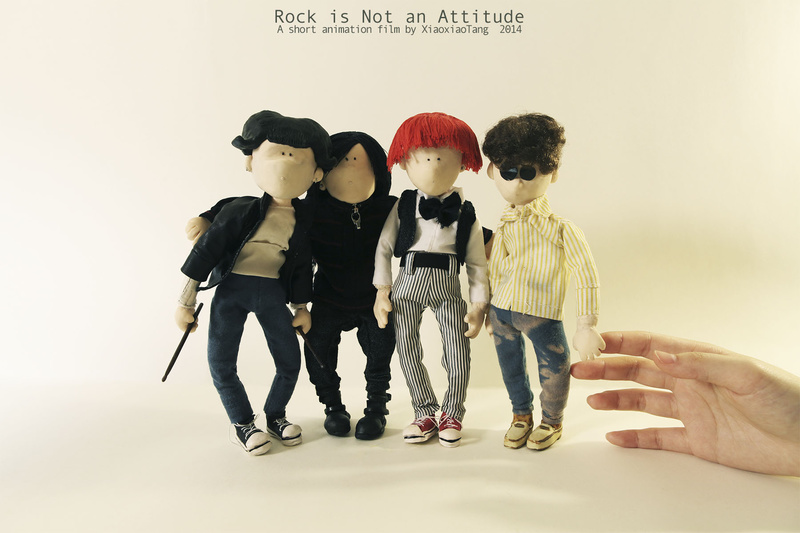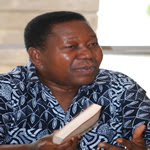ROFFEKE: What unique challenges did you face in the making of "The Take Away" that you did not face making the previous two short films in the series? What challenges were similar to those of the other two short films? How long was the filming process and the editing process? What interesting parts, if any, ended up on the cutting floor and why?
Susan Carol Davis:
The challenges for the three films that Claire and I have made together are very similar:
1) Amount of time available to film 2) Limitations in budget available to promote the film once they were made 3) Availability of subjects to interview in a timely manner. When we set a goal to complete a film project for a requested film festival premiere, that has sometimes meant wrapping up our shooting of the film before every single person is interviewed whom we wanted to include.
At the same time, we set a goal to keep the length of our films under 20 minutes generally and that does mean, some favorite moments are edited out of the final cut when those moments don’t drive the story forward or mean as much to an audience outside of Denton, Texas where our filmed subjects live. The filming process for The Take Away was a total of 12 months with editing being a 5-month process.
 |
| Cassandra Berry |
Claire Blakeney DeJarnett:
Our trip to Palestine with Cassandra yielded many hours of interesting footage, stories, and interactions that were especially difficult to trim down. At Cassandra’s old high school she tells a couple of intense, heartbreaking, and eye-opening stories about her time there. Taking these moments out was a choice for time and tone. A challenge on site in Palestine was the heat! I believe we were filming in Texas in July and this made it difficult to film exteriors for extended periods of time.
ROFFEKE tackles the misconceptions that rock is "mzungu" (white man) music and devil music. Muddy Waters sang that "The Blues had a baby and they named it rock and roll". You sing The Blues and Gospel (and rock?) in neighborhood bars. How do you reconcile all that - white, devil music, etc - with your Faith and history?
Cassandra Berry:
I personally do not buy into the misconceptions of rock music. Most, if not all, music is influenced by African/African American spirituals and gospel music, which often offers messages of hope and a rhythm that promoted excitement. The music I sing are messages of love, hope and community. Messages that need to be shared inside and outside the walls of faith-based communities. My audiences know that I identify as a Christian, whose heart is to carry out the true meaning of love and unity.
I was once asked by a pastor if I was still singing in the bars and the eateries. I told him yes and that I tend to go where Jesus would also go.
If through music, I can help someone to feel better leaving, than when they came, then I feel I fulfilled by life’s mantra. That mantra is “if I can help somebody while on this life’s journey, then my living is not in vain”. And that’s how I reconcile my faith and history.
 |
| Susan Carol Davis |
ROFFEKE: In addition to being the CEO of Curious Dog Creative LLC, a film/stage director, producer and actress, you are also an arts educator. a) What would you say is the importance of arts education?
b) As a juror for the Thin Line Fest, what makes a film (or screenplay) stand out for you?
Susan:
a) Arts education encourages openness to other cultures, other traditions and other lifelong interests. Whether young adults decide to graduate from high school or college then work as dancers, actors or visual artists, they can enjoy the arts as hobbies and support arts organizations as donors. Art education in large or small communities opens up opportunities for people of all ages with physical, emotional or mental challenges to thrive and nurture self-esteem.
b) The films or screenplays that stand out to me capture my attention and interest within the first minutes of watching or reading. One example is the contemporary film, Emilia Pérez, nominated for the Golden Globes and Oscars this year. The camera work, the visuals, the sounds and acting are intriguing. I want to know more. I want to watch more. A film can have a large budget or a small budget. What I look for in narrative and documentary films is the director or writer’s clear point of view and how valuable their stories are in impacting the modern world for positive change and tolerance.
.jpeg) |
| Claire Blakeney DeJarnett |
ROFFEKE: You are the director of Film Programming for Thin Line Fest. What steps, if any, do you take to ensure the film programme is diverse and inclusive? What challenges do you face in this attempt?
Claire:
We have a terrific film programming team that is dedicated to watching all submissions in order to curate an interesting, diverse, and inclusive line-up and work with a number of distributors that bring quality content from around the globe. We try to program content from multiple perspectives and cultures and engage the communities around these topics. Our biggest challenge is the amount of submissions to review and chisel down. We receive around 400 submissions a season and have a small program each year. That small program must be engaging, unique, and varying in its themes and perspectives.
ROFFEKE: All three of you wear many hats and encounter (I think) similar challenges that women in entertainment from all over the world face. How do you take care of your mental health?
Susan:
I keep a sales job in the retail industry (clothing) because I enjoy the staff teamwork and because I like helping people of all ages to have a healthy body image. I also enjoy my home and my two dogs where there is peace and quiet and a place to entertain others. I begin and end every day with 15 minutes of meditation and prayer.
Cassandra:
Music is one of a few things that helps my mental wellbeing; it’s my love language with the God I serve. Family is very important to me, so spending quality time with them promotes positive mental health.
Claire:
Unabashedly, this is something I struggle with on a daily basis. Sometimes, the stress of my “many hats” and state of the world can feel overwhelming, but I try to make time for the activities that feed my soul and instill a sense of awe. I find peace in nature, and even if the day is busy and I can’t make it out for a hike, looking up at the sky for a moment or admiring a flower grounds me.






























































































































































































